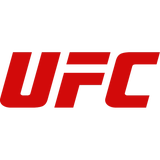
Roy Nelson not confident drug testing is making a difference

Heavyweight Roy Nelson faces one of the more notorious banned performance-enhancing drug (PED) users in recent years, Alistair Overeem, Saturday at UFC 185, so it was little surprise that the topic of doping came up. The UFC has been all over the map during the past year with its own drug policies, culminating with a hastily assembled press conference that announced no real mechanical details on a supposed new set of testing policies but struck a suddenly serious tone.
The promotion's own struggles with drug testing are to say nothing of issues with regulators like the Nevada Athletic Commission, which over just the past few months has kept important medical information from a fighter and allowed the UFC to effectively self-regulate as well as make medical decisions for that fighter (as in the case of Jon Jones' positive cocaine test leading up to UFC 182). There's also the matter of pre-fight testing of Anderson Silva, fouled up so badly that even though he tested positive for banned steroids well before his scheduled UFC 183 main event against Nick Diaz, the commission claimed to have not been aware of that until it was too late to stop the fight from happening.
Nelson looked at situations like those and has come away with little confidence in the system. He's resigned to not knowing whether or not his opponent Saturday will be clean.
"It's just one of those things that, I'm happy [about drug testing], but is it really going to make a difference?" Nelson asked during an interview with MMA Fighting.
"Because with some of the policies, it's not really set in stone. Like, you can do cocaine one day and that's cool because it's not in-competition ... but you're getting ready for a fight, so it is [in-competition]? It's just one of those things. You get popped for a steroid beforehand, before the fight actually starts, but we're still going to let the fight go on? So it really doesn't really matter -- if you catch me, we're still going to have a fight? So what's even the sense of having a policy?"
With regards to Overeem, in particular, Nelson figuratively shrugged his shoulders. "I mean, he got busted before," he said.
"I believe that was his doctor's fault, which, whatever. But it's just one of those things. I can't tell you what's right and what's wrong. I just know that if Texas didn't test him, or UFC didn't test him, he could still be on them. I don't know."
There's no assurance that fighters who claim that opponents use PEDs aren't also using banned drugs. Renzo Gracie, for example, recently spoke about widespread banned PED use in MMA.
According to Gracie, everyone uses. Well, everyone except lineage fighters of his, Chris Weidman and Frankie Edgar.
"Everybody is taking [steroids]," Gracie told Tatame in a recent interview.
"There are some exceptional guys, like Frankie Edgar and Chris Weidman. Those two never took anything. I watch them closely. Everybody takes [steroids], except them. But they are rare cases."
For his part, Nelson is usually handled as above reproach or suspicion simply because of his body type. There is, of course, no necessary connection between body appearance and banned PED usage.
With that being the case, any fighter, no matter their body fat percentage, could see recovery benefits from some banned PEDS. In any case, Nelson continues to be an outspoken tough drug critic.
According to the KO artist, harsher penalties for those who fail drug screenings could deter future use.
"A policy is just like, 'Hey, I can still fight and just be suspended for a year?' If I only fight once a year anyways, who cares?'," he questioned.
"If it'd be like, first offense, you're banned for life, or you're banned for five years, [then] you're taking somebody's money a lot. A year is like, 'Oh, I fight once a year anyways.' But if you're fighting once every five years, then you might think about it. It's one of those things that it's definitely, you could put some sting onto it."
